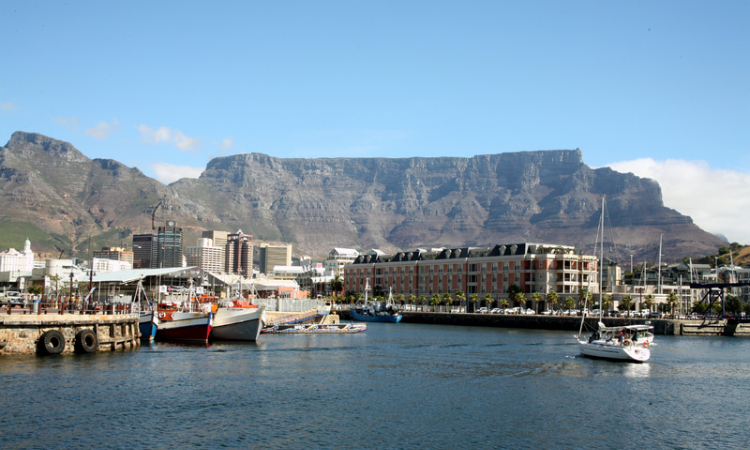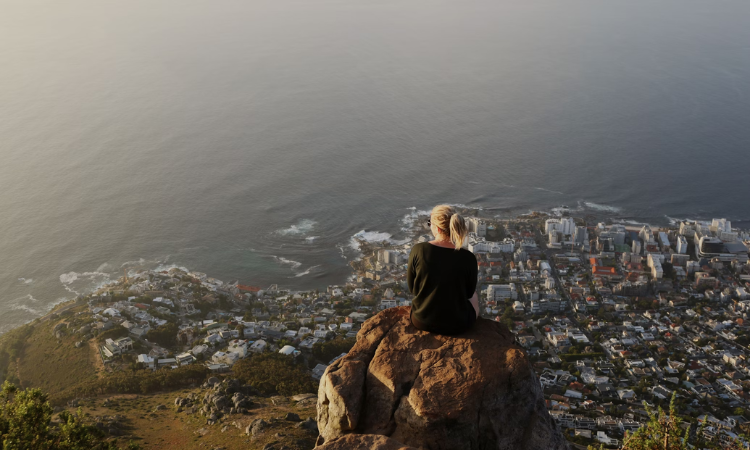Cape Town, nestled at the southern tip of Africa, stands as one of the continent’s most vibrant and captivating tourist destinations. With its stunning natural beauty, rich cultural heritage, and diverse array of attractions, Cape Town draws millions of visitors each year, eager to explore its iconic landmarks, pristine beaches, and thriving culinary scene. However, like any major city, safety is an important consideration for travelers navigating the streets of Cape Town.
Overview of Cape Town as a Top Tourist Destination:
Cape Town’s allure lies in its breathtaking landscapes, from the iconic Table Mountain to the sweeping vistas of the Cape Winelands. The city’s eclectic mix of cultures, reflected in its architecture, cuisine, and traditions, adds to its appeal as a melting pot of diversity and creativity. Visitors can immerse themselves in the city’s history at Robben Island, indulge in world-class shopping and dining along the V&A Waterfront, or unwind on the pristine beaches of Clifton and Camps Bay. With an abundance of outdoor activities, cultural experiences, and natural wonders to explore, Cape Town offers something for every traveler.
The Importance of Safety for Travelers:
Safety is paramount for travelers exploring any destination, and Cape Town is no exception. While the city boasts many attractions and experiences, it’s essential for visitors to be aware of potential risks and take necessary precautions to ensure their safety and well-being. Understanding local customs and cultural norms, staying informed about current events and safety advisories, and being mindful of one’s surroundings are essential steps for travelers navigating Cape Town’s streets.
Moreover, being vigilant about personal belongings, especially in crowded areas and tourist hotspots, can help mitigate the risk of theft or pickpocketing. Additionally, utilizing reputable transportation options and avoiding unlicensed taxis can contribute to a safer travel experience. By staying informed, exercising caution, and trusting one’s instincts, travelers can enjoy all that Cape Town has to offer while minimizing potential risks.
Understanding Safety in Cape Town
The question, “Is Cape Town safe?” is a global concern for travelers considering a visit to this vibrant South African city. While Cape Town offers a wealth of attractions and experiences, safety remains a significant consideration due to perceptions of crime and security challenges. To address this concern, it’s essential to delve deeper into the realities of safety in Cape Town, examining crime rates, tourist experiences, and measures taken to ensure the well-being of visitors.
Crime Rates in Cape Town:
Cape Town has gained notoriety for its high crime rates, particularly in certain areas characterized by socio-economic challenges and inequality. Violent crime, including robbery, assault, and theft, remains a concern, with incidents often reported in urban townships and informal settlements. However, it’s important to note that crime in Cape Town, as in any major city, tends to be localized, with certain neighborhoods experiencing higher crime rates than others.
Tourist Experiences:
Despite concerns about safety, many tourists visit Cape Town each year and have positive experiences exploring the city’s attractions. Popular tourist areas such as the V&A Waterfront, Table Mountain, and Camps Bay are generally considered safe for visitors, with a visible police presence and security measures in place to ensure the safety of tourists. Additionally, organized tours and guided experiences offer visitors the opportunity to explore Cape Town’s landmarks and cultural sites with knowledgeable guides, adding an extra layer of security and peace of mind. Booking Cape Town tours is a great way to ensure you are with a safe company.
Statistics and Data:
Statistics on crime rates in Cape Town provide valuable insights into the safety landscape of the city. While crime rates may fluctuate over time, data from organizations such as the South African Police Service (SAPS) and local authorities offer a comprehensive overview of crime trends and patterns. By analyzing this data, travelers can make informed decisions about their safety and take appropriate precautions to mitigate potential risks.
Key Areas and Their Safety in Cape Town
1. City Centre and Central Business Districts:
Cape Town’s city center, often referred to as the “city bowl,” encompasses the central business districts and is a bustling hub of activity. While the city center is generally safe during daylight hours, visitors should exercise caution, especially at night, and be mindful of their surroundings. Stay alert in crowded areas, avoid displaying valuables openly, and use reputable transportation options when moving around the city center. Additionally, stick to well-lit and populated streets, particularly after dark, and consider traveling in groups when exploring the city center at night.
2. Cape Town’s Popular Tourist Attractions:
Cape Town is home to several iconic tourist attractions, including Table Mountain, Lion’s Head, Camps Bay, and Robben Island. These sites draw millions of visitors each year and are generally safe for tourists to explore. However, it’s essential to follow safety guidelines and heed any warnings or restrictions in place. When hiking Table Mountain or Lion’s Head, stay on designated trails, wear appropriate footwear, and carry plenty of water and sunscreen. In Camps Bay, enjoy the beautiful beach but be cautious of strong currents and adhere to lifeguard instructions. Similarly, when visiting Robben Island, follow the guidance of tour guides and respect the historical significance of the site.
3. The Cape Flats and Township Areas:
The Cape Flats and township areas, located on the outskirts of Cape Town, are known for socio-economic challenges and, in some areas, gang-related violence. While many townships offer cultural tours and opportunities for meaningful engagement with local communities, visitors should exercise caution and avoid venturing into unfamiliar areas without a guide. Stick to reputable tour operators when exploring township areas and heed any safety advice provided. Additionally, it’s advisable to avoid flashing valuables or carrying large sums of cash in these areas and be respectful of local customs and traditions.
Transportation Safety in Cape Town
1. Cape Town International Airport:
Cape Town International Airport serves as the primary gateway for travelers visiting the city, handling millions of passengers each year. As one of the busiest airports in Africa, it maintains high safety standards and provides a range of facilities and services to ensure a smooth and secure travel experience. Visitors arriving at the airport can expect efficient customs and immigration procedures, modern terminal facilities, and dedicated security personnel. Additionally, transportation options from the airport, including taxis, shuttle services, and rental cars, offer safe and reliable means of reaching their destinations within Cape Town and beyond.
2. Public Transport:
Cape Town’s public transportation system consists of buses, trains, and minibus taxis, providing affordable and convenient options for getting around the city. The MyCiTi bus system offers a safe and reliable way to navigate Cape Town’s major routes, with designated stops and dedicated lanes to ensure efficient travel. Similarly, Metrorail trains serve suburban areas and offer an alternative mode of transport for commuters and visitors. While minibus taxis are widely used by locals, they may not be the most suitable option for tourists due to safety concerns and the lack of formal routes and schedules.
3. Uber Safety in Cape Town:
Uber is a popular transportation option in Cape Town, offering convenient and affordable rides for travelers and locals alike. The service operates with stringent safety protocols in place, including driver background checks, vehicle inspections, and real-time tracking features for enhanced security. While incidents of safety concerns may occur, such as petty crime or disputes over fares, Uber generally provides a safe and reliable alternative to traditional taxis in Cape Town. Travelers are advised to exercise caution, ensure that the vehicle and driver details match the information provided in the app, and report any safety concerns to Uber’s customer support.
4. Road Safety and Driving in Cape Town:
Driving in Cape Town is generally safe, with well-maintained roads and signage and adherence to traffic laws enforced by local authorities. However, visitors should be aware of certain challenges, including erratic driving behavior, congestion during peak hours, and the prevalence of carjackings and smash-and-grab incidents, particularly in high-crime areas. It’s advisable to exercise caution when driving in unfamiliar areas, avoid displaying valuables or leaving belongings in plain sight, and keep vehicle doors locked at all times. Additionally, consider using GPS navigation or mobile apps to plan routes and avoid areas with known safety risks.
Staying Safe: Tips and Precautions
As with any travel destination, ensuring your safety while visiting Cape Town requires awareness, preparation, and caution. Here are some essential tips and precautions to help you stay safe during your time in the city:
1. Avoid Carrying Large Sums of Cash:
Minimize the risk of theft by avoiding carrying large sums of cash with you. Instead, opt for alternative payment methods such as credit or debit cards, which offer greater security and can be easily replaced if lost or stolen. If you need to carry cash for small purchases, only take what you need for the day and keep it securely hidden in a money belt or pouch.
2. Stay Vigilant:
Remain vigilant at all times, especially in crowded or tourist areas where pickpocketing and petty theft may occur. Keep an eye on your belongings and be cautious of your surroundings, particularly in crowded markets, public transportation, and popular tourist attractions. Trust your instincts and avoid engaging with suspicious individuals or situations that make you feel uncomfortable.
3. Safety Tips for Solo Travelers:
If you’re traveling alone, take extra precautions to ensure your safety. Stay in well-lit and populated areas, particularly at night, and avoid walking alone in quiet or isolated areas. Be cautious when interacting with strangers and avoid sharing personal information or revealing your travel plans to unfamiliar individuals. Consider joining organized tours or group activities to enhance your safety and meet fellow travelers.
4. Avoid Walking at Night in Quiet Areas:
While Cape Town offers many vibrant and bustling neighborhoods, some areas may become quiet and deserted at night, increasing the risk of opportunistic crime. Avoid walking alone in poorly lit or isolated areas after dark, especially if you’re unfamiliar with the surroundings. Instead, use reputable transportation options such as taxis or ridesharing services to ensure a safe journey to your destination. If walking at night is unavoidable, stick to well-trafficked streets and remain vigilant of your surroundings at all times.
By following these tips and precautions, you can help ensure your safety and enjoy a memorable and worry-free experience during your time in Cape Town. Remember to stay informed about local safety advisories, trust your instincts, and take proactive measures to protect yourself and your belongings while exploring this beautiful city. With the right precautions in place, you can make the most of your visit to Cape Town while staying safe and secure.
Emergency Services and Assistance
Ensuring access to emergency services and assistance is crucial for travelers visiting any destination, including Cape Town. Here’s important information on accessing help in case of emergencies:
1. Public Safety Officers:
Cape Town has dedicated public safety officers who patrol popular tourist areas and provide assistance to visitors in need. These officers are often stationed in busy tourist hubs, such as the V&A Waterfront, Table Mountain, and major shopping districts. If you require help or have concerns about your safety, don’t hesitate to approach a public safety officer for assistance. They are trained to handle a variety of situations and can provide guidance and support when needed.
2. Tourist Police:
In addition to public safety officers, Cape Town also has a dedicated tourist police unit that focuses on assisting visitors to the city. Tourist police officers are trained to speak multiple languages and are familiar with the needs of tourists. They can provide assistance with lost belongings, emergencies, and other issues encountered by travelers. Tourist police stations are located in prominent tourist areas and can be easily identified by their signage. Don’t hesitate to seek help from the tourist police if you encounter any difficulties during your stay in Cape Town.
3. Emergency Contact Numbers:
It’s essential to have access to emergency contact numbers in case of urgent situations. The following are important contact numbers for emergencies in Cape Town:
- Police Emergency: 10111
- Ambulance/Medical Emergency: 10177
- Fire Emergency: 021 480 7700 (Cape Town Fire and Rescue Service)
- Tourist Safety Line: 086 132 2322 (24-hour hotline for tourist-related emergencies)
Save these numbers in your phone and keep them readily accessible in case of emergencies. Remember to provide clear and accurate information when contacting emergency services and follow their instructions until help arrives.
By familiarizing yourself with public safety officers, tourist police, and emergency contact numbers, you can ensure that you have access to assistance and support in case of emergencies during your visit to Cape Town. Don’t hesitate to reach out for help if you encounter any issues or concerns during your stay, as local authorities are committed to ensuring the safety and well-being of all visitors to the city.
Cape Town for Solo Travelers and Women
Traveling solo, especially as a woman, can be a rewarding and empowering experience, but it’s essential to take precautions to ensure your safety and well-being while exploring Cape Town. Here are some specific tips and advice for solo travelers and women visiting the city:
1. Stay Informed and Plan Ahead:
Before your trip, research the areas you plan to visit in Cape Town and familiarize yourself with local customs, safety tips, and potential risks. Plan your itinerary in advance and share your travel plans with a trusted friend or family member. Consider joining organized tours or group activities to enhance your safety and meet other travelers.
2. Beware of Tour Guide Scams:
While many tour guides in Cape Town are reputable and trustworthy, there may be individuals who try to take advantage of unsuspecting tourists. Be cautious of offers that seem too good to be true or guides who pressure you into making quick decisions. Always verify the credentials and reviews of tour operators before booking, and never hand over money or personal information without doing your due diligence.
3. Utilize Reputable Transportation Options:
When navigating Cape Town, opt for reputable transportation options such as licensed taxis, ridesharing services like Uber, or public transportation. Avoid hitchhiking or accepting rides from strangers, especially if you’re traveling alone. Stick to well-lit and populated areas, particularly at night, and trust your instincts if a situation feels unsafe or uncomfortable.
4. Dress and Behave Appropriately:
Respect local customs and dress modestly, especially when visiting religious sites or conservative areas. Avoid drawing unnecessary attention to yourself by wearing flashy jewelry or displaying expensive belongings openly. Be mindful of your surroundings and avoid engaging in risky behaviors that could make you a target for theft or harassment.
5. Stay Connected and Stay Safe:
Keep your mobile phone charged and carry a portable charger or power bank with you to ensure you can stay connected in case of emergencies. Share your location with friends or family members using a tracking app or messaging service, and check in regularly to let them know you’re safe. Trust your instincts and don’t hesitate to remove yourself from any situation that feels unsafe or uncomfortable.
FAQs: Safety in Cape Town
1. Is Cape Town safe for tourists?
Cape Town is generally safe for tourists, but like any major city, it’s essential to remain vigilant and take precautions. While certain areas may have higher crime rates, popular tourist destinations such as the V&A Waterfront, Table Mountain, and Camps Bay are generally safe for visitors. It’s advisable to stay informed about safety advisories, avoid displaying valuables openly, and stick to well-lit and populated areas, particularly at night.
2. What are the safety concerns in Cape Town’s hiking trails?
Cape Town’s hiking trails offer breathtaking views and exhilarating experiences, but safety concerns can arise, particularly for solo hikers or those unfamiliar with the terrain. It’s essential to stay on designated trails, carry plenty of water and snacks, and inform someone of your hiking plans. Be mindful of weather conditions, wear appropriate footwear, and consider joining guided hikes or group tours for added safety.
3. Is it safe to use public transport in Cape Town?
Cape Town’s public transportation system, including buses, trains, and minibus taxis, provides convenient options for getting around the city. While public transport is generally safe, travelers should exercise caution, particularly when using minibus taxis. Stick to reputable operators, avoid traveling alone at night, and keep valuables secure. Opt for alternative transportation options such as Uber or metered taxis for added safety and convenience.
4. Can I walk around Cape Town at night?
Walking around Cape Town at night can be safe in well-lit and populated areas, but it’s essential to take precautions. Stick to main streets and avoid walking alone in quiet or poorly lit areas, especially after dark. Be aware of your surroundings, trust your instincts, and consider using transportation options such as taxis or ridesharing services for added safety at night.
5. Are there any areas in Cape Town I should avoid?
Certain areas of Cape Town, such as the Cape Flats and township areas, may have higher crime rates and pose safety risks, particularly for tourists. It’s advisable to avoid venturing into unfamiliar or high-crime areas without a local guide. Stick to well-known tourist destinations and exercise caution when exploring off-the-beaten-path areas. By staying informed and using common sense, visitors can enjoy a safe and memorable experience in Cape Town.
In conclusion, Cape Town offers a wealth of experiences and attractions for travelers to enjoy, but it’s essential to prioritize safety and take precautions while exploring the city. Still waiting for the answer to is Cape Town safe? Yes, it is! Visit Cape Town and you’ll know we are right!
By staying vigilant, avoiding risky situations, and following common-sense safety tips, travelers can minimize potential risks and enjoy all that Cape Town has to offer. Whether hiking Table Mountain, exploring vibrant neighborhoods, or soaking up the sun on beautiful beaches, Cape Town’s beauty and diversity are best enjoyed with the right precautions in place.
Ultimately, with proper planning and awareness, visitors can have a safe and memorable experience in Cape Town, creating unforgettable memories while exploring one of South Africa’s most captivating cities.
Check out our South Africa Group tours, plan one of these trips, and immerse yourself in the magic of Cape Town with confidence and peace of mind.
 Toll Free (USA & Canada) +1 866 978 2997
Toll Free (USA & Canada) +1 866 978 2997









